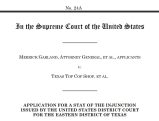
The Corporate Transparency Act 2024 introduces significant changes in beneficial ownership reporting for U.S. companies. This guide covers everything from compliance obligations, reporting details, to penalties for non-compliance, providing vital information to help businesses navigate this new regulatory environment.
by LawInc Staff
January 2, 2024
The Corporate Transparency Act brings major changes to federal regulations surrounding beneficial ownership reporting for certain U.S. companies. Signed into law in January 2021, it mandates gathering identifying details on individuals owning or controlling American corporations, limited liability companies and other specified entities.
This comprehensive guide informs key stakeholders on meeting compliance obligations for the new Beneficial Ownership Information Reports (BOIRs) enforced by the Department of Treasury’s Financial Crimes Enforcement Network (FinCEN).
We explore critical topics like types of business structures impacted, what beneficial ownership specifics must get reported, deadlines for filing initial and updated disclosures, how submission processes work and penalties for noncompliance. Our aim is to empower organizations in navigating the regulatory landscape as BOIR rules phase in.
Overview
The Corporate Transparency Act brings major changes to reporting requirements surrounding beneficial ownership for certain business entities in the United States.
Who Must Report
-
- Corporations, LLCs, and other entities created by filing with a secretary of state or similar office
- Excludes certain trusts not formed by such filings
- Foreign entities registering to do business in the U.S.
Exemptions Include:
-
- Large operating companies with more than 20 full-time employees in the U.S., gross receipts or sales exceeding $5 million, and an operating presence at a physical office within the U.S.
- Public companies traded on major exchanges
- Tax-exempt nonprofits
- Regulated industries such as banks, credit unions, and insurance firms
What Information Gets Reported
-
- Full legal names of reporting entities
- Current business addresses
- Taxpayer ID numbers like EINs
- Details on individual beneficial owners, including:
- Full legal name
- Date of birth
- Current residential or business street address
- A copy of an unexpired, government-issued, identifying document (e.g., passport, driver’s license)
- Similar details for company applicants
Beneficial owners include:
-
- Those owning ≥25% equity stake
- Majority shareholders
- Those with substantial control
Who Must Report
-
- Domestic Corporations and Limited Liability Companies (LLCs): Traditional C-Corps, S-Corps, single member LLCs etc.
- Partnerships and Venture Capital Funds: Includes LP, LLP, LLC partnerships plus VC/PE structures.
- Certain Business Trusts: Statutory trusts filing partnership or corporate tax returns.
- Foreign Entities Registering in U.S.: Overseas companies registering to do business in America.
- Some Exemptions Like Large Public Firms: Details below.
Exempt Entities Include:
-
- Public companies filing SEC reports
- Tax-exempt nonprofits
- Banks, credit unions, insurance firms
- Publically traded commodities/futures brokers
- Entities with physical business presence + under 20 full-time U.S. employees
How Exemptions Get Claimed:
-
- File newly exempt entity report with FinCEN
- Maintain records substantiating eligibility
- Certain pooled investment vehicles have streamlined process
- Review criteria every two years confirming still qualify
- Immediately report to FinCEN if status changes to non-exempt
Penalties for Improper Exemption Claims:
-
- Civil monetary penalties up to $500 per day
- Criminal liability for false statements
- Ineligible for exemption going forward
- Reputational risks
- Scrutiny of future regulatory compliance
What Information Must Be Reported
-
- Full Legal Name and Business Address: Of the reporting company submission contact.
- Taxpayer Identification Number: EIN or SSN associated with the reporting entity.
- Jurisdiction of Formation: Where the company organized e.g. state.
- Details on Individual Beneficial Owners: See specifics below.
- Non-U.S. Entities Must Also Report: Foreign registration jurisdiction.
Beneficial Owners Include:
-
- Those owning ≥25% equity stake
- Majority shareholders
- Those with substantial control
- Senior officers like CEO, CFO etc.
- Managers, General Partners, Trustees
Specific Data Reported on Individuals:
-
- Full legal name
- Date of birth
- Address
- Identity document information
- Document identifying number
Penalties for Reporting Violations:
-
- Civil penalty of up to $500 per day for each day a violation continues without cure
- Criminal penalties for willful failure to report complete or updated BOI, including up to two years of imprisonment and a fine of up to $10,000
- Bars on opening/maintaining bank accounts
- Extra scrutiny from regulators
- Reputational damage
When Reports Must Be Filed
-
- Initial Reports Deadlines: Vary based on entity formation/registration date.
- Updates Within 30 Days: Of any changes in ownership or control.
- Correction Deadline – 30 Days: From discovering any report inaccuracies.
- Streamlined Reporting: For some exempt entities.
- Calendar Year Reporting: Annual reports not mandated.
Initial Report Due Dates:
-
- Entities formed before 01/01/24: 01/01/25
- Formed between 01/01/24-12/31/24: 90 days after formation/registration
- Formed on or after 01/01/25: 30 days after formation/registration
- Good faith provision allows some flexibility
- Foreign entities timeline tied to U.S. registration
Reporting Exemptions and Streamlining:
-
- File notice of exempt status with FinCEN
- Some pooled investment vehicles can limit reports
- Exempt entities must reconfirm status every 2 years
- Immediate reporting required if conditions change
- Strict substantiation rules for exemptions
Late Reporting Penalties:
-
- Up to $500 per day, maximum $10,000
- Potential criminal liability
- Possible bars on bank accounts
- Ban on participating in equity/capital markets
- Reputational damage
How to File Reports
-
- Use FinCEN’s Beneficial Ownership Secure System (BOSS): The primary portal for submitting Beneficial Ownership Information Reports. Detailed instructions at FinCEN’s BOI Reporting Page.
- Digital Document Uploads: Required for submitting copies of unexpired, government-issued identifying documents of beneficial owners and company applicants.
- Two Online Submission Options: File pre-formatted PDF report or enter data interactively through the BOSS platform.
- Online Account Authentication: Use login.gov single sign-on credentials for secure access.
- FinCEN Issued Identifier: Can optionally auto-populate for individuals, facilitating future filings.
Acceptable Identity Documents Include:
-
- Valid state driver’s license
- Current U.S. passport
- Tribal ID
- Foreign passport if no other
- Identity document issued by state or local jurisdiction
Tips for Successful Submissions:
-
- Use recommended browser and PDF software
- Ensure all fields marked required are complete
- Double check identity document image quality
- Save confirmation numbers for records
- Troubleshoot issues using available technical guides
Contact FinCEN with System Problems:
-
- Via email: [email protected]
- By phone: 1-800-767-2825
- Troubleshooting guides also available
- Support for technical questions on filing process
- Cannot advise on specific beneficial ownership compliance
Leverage Resources to Comply
-
- Review Extensive FinCEN Guidance Materials: Multiple manuals detail reporting rules.
- Browse FAQ Databases: Answers to common questions.
- Watch Recorded Training Webinars: On-demand sessions highlighting best practices.
- Contact FinCEN Compliance Helpline: Schedule assistance consultation.
- Confirm Filing Platform Readiness: Ensure technical requirements met.
Key Compliance Resources:
No Filing Extensions or Exemptions Possible:
-
- Strict legal deadlines for submissions
- Requirements apply to both U.S. and foreign entities
- Exemptions narrowly limited per FinCEN rules
- Penalties imposed for missed deadlines
- Immediate reporting for status changes
Allow Sufficient Implementation Time:
-
- Assess resources and process gaps
- Identify beneficial owners well ahead of deadlines
Practical Tips for Compliance
-
- Ensure Accurate and Complete Filings: Double-check that all required information is accurately and completely filled out. Inaccuracies or omissions can lead to penalties.
- Regular Updates: Keep your filings up to date. If there are any changes in beneficial ownership or company structure, update your report within 30 days.
- Maintain Records for Audit Trails: Keep detailed records of all filings and supporting documents. This will be invaluable for both internal reviews and in case of external audits.
- Use Available Resources: Take advantage of the guidance materials provided by FinCEN, such as the Small Entity Compliance Guide and FAQs, to better understand your compliance obligations.
- Seek Professional Advice: Consult with legal experts familiar with the CTA and BOIR regulations to ensure that your organization is fully compliant.
Summary
-
- New Rules Enhance Ownership Transparency: Closes information gaps leveraged for financial crimes.
- Phased Compliance Timelines On Horizon: According to entity type and formation date.
- Standardized Reporting Protocols Established: Using FinCEN’s BOI secure e-filing platform.
- Some Exemptions Permitted If Eligibility Maintained: But substantial proof is required.
- Steep Penalties Enforced For Noncompliance: Both civil fines and criminal liability.
Key Takeaways:
-
- Perform comprehensive due diligence on all entity beneficial owners
- Leverage available FinCEN guidance exhaustively
- Build proper e-filing procedures and test thoroughly
- Continuously revalidate reporting processes
- Document decisions and maintain audit trails
- Consult with an attorney to protect yourself.
Need Help Complying with the Corporate Transparency Act?
Contact us, anytime, if you require assistance with complying with the Corporate Transparency Act.
Test Your Corporate Transparency Act Knowledge
Questions: Who Must Report
-
- 1. Which entities must submit beneficial ownership reports?
- A) Publicly traded companies
- B) LLCs formed by state filings
- C) Nonprofit organizations
- D) Sole proprietorships
- 2. What is an exempt entity type?
- A) Small LLCs
- B) Insurance providers
- C) Shell companies
- D) Private foundations
- 3. Can exempt status filers skip ongoing reviews?
- A) Yes
- B) No
- C) Every 5 years
- D) Optional
- 4. What happens if ineligible entities claim exemptions?
- A) Immediate reporting required
- B) Civil fines may apply
- C) Subject to audits
- D) All of the above
- 5. Can LLCs with over 500 employees qualify for exemption?
- A) Yes
- B) No
- C) In certain cases
- D) If privately held
- 1. Which entities must submit beneficial ownership reports?
Answers: Who Must Report
-
- 1. B) Limited liability companies, corporations, partnerships and certain statutory trusts formed by filing with a state or Tribal jurisdiction must submit reports.
- 2. B) Banks, credit unions, insurance companies, public traded firms and tax-exempt nonprofits represent exempt entities.
- 3. B) Exempt status requires reconfirmation every 2 years with immediate reporting if conditions change.
- 4. D) Ineligible exemption claims trigger all: fines, bans, audits and mandated immediate disclosure.
- 5. B) No, exemption eligibility requires under 20 full-time U.S. employees.
Questions: What Information Must Be Reported
-
- 1. What company details must reports include?
- A) Number of employees
- B) Business address
- C) Year founded
- D) Company Taxpayer Identification Number (EIN)
- 2. What beneficial owner specifics must be disclosed?
- A) Income
- B) Ownership stake
- C) Date of birth
- D) Photo
- 3. What documents facilitate identity verification?
- A) Social Security cards
- B) Bank statements
- C) Government-issued IDs, such as passports
- D) Birth certificates
- 4. Can my BOI report contain redactions?
- A) Yes, of sensitive data
- B) Yes, as needed
- C) No
- D) Only in special cases
- 5. Are annual re-filings mandated?
- A) Yes
- B) No, but updates are required within 30 days of changes in beneficial ownership
- C) Every 2 years
- D) Every 5 years
- 1. What company details must reports include?
Answers: What Information Must Be Reported
-
- 1. D) Required company details include business name/address, EIN and jurisdiction where organized.
- 2. C) Date of birth helps confirm identity alongside full legal names and addresses for beneficial owners.
- 3. C) Valid unexpired passports represent allowable identity documents for verification purposes.
- 4. C) Absolutely no redactions are permitted on ownership reports or supporting identity documents.
- 5. B) Updates are required within 30 days of material changes but annual re-filings not mandated.
Questions: When Reports Must Be Filed
-
- 1. When must pre-existing entities file initial reports by?
- A) December 2023
- B) January 2024
- C) January 2025
- D) December 2025
- 2. How soon after changes must amended reports get filed?
- A) 7 days
- B) 15 days
- C) 30 days
- D) 45 days
- 3. Can filing extensions be requested?
- A) Yes
- B) No
- C) Case-by-case
- D) With permission
- 4. How frequently must exempt status get reconfirmed?
- A) Annually
- B) Every 2 years
- C) Every 5 years
- D) Optional
- 5. Can late filings incur penalties?
- A) No
- B) Yes
- C) After 6 months
- D) After 1 year
- 1. When must pre-existing entities file initial reports by?
Answers: When Reports Must Be Filed
-
- 1. C) Pre-existing entities must file initial reports by January 1st, 2025.
- 2. C) Changes in beneficial ownership necessitate amended filings within 30 days.
- 3. B) Strict legal deadlines apply with no filing extensions possible.
- 4. B) Exemption eligibility requires reconfirmation every 2 years.
- 5. B) Yes, civil penalties up to $500 per day can apply for late submissions.
Questions: How to File Reports (Cont.)
-
- 2. Are document uploads required?
- A) No
- B) Yes
- C) For businesses over 5 years old
- D) Optional
- 3. How can report data get submitted?
- A) Scanned PDF upload
- B) Interactive online form
- C) Faxed paper version
- D) Both A and B
- 4. What login credentials enable system access?
- A) IRS multifactor authentication
- B) Secretary of State numbers
- C) Login.gov identities
- D) Application-specific passwords
- 5. Can auto-populated identifiers help streamline future filings?
- A) No
- B) Yes
- C) For companies only
- D) For individuals only
- 2. Are document uploads required?
Answers: How to File Reports
-
- 1. B) FinCEN’s Beneficial Ownership Secure System (BOSS) serves as the official filing platform.
- 2. B) Yes, identity document uploads are mandatory during submissions.
- 3. D) Both pre-formatted PDF uploads or interactive web form completion are acceptable.
- 4. C) Login.gov federally approved credentials provide secure authentication.
- 5. B) Yes, optional individual FinCEN identifiers can auto-populate for quicker future filings.
Questions: Practical Tips for Compliance
-
- 1. Why keep detailed reporting records?
- A) Tax considerations
- B) Audit trails
- C) Performance tracking
- D) Investor relations
- 2. How help ensure accuracy in submissions?
- A) Legal review
- B) Secondary validation
- C) Testing uploads
- D) Using identifiers
- 3. Why seek attorney guidance on the CTA?
- A) Ensure exemptions optimized
- B) Obtain fines waivers
- C) File extension requests
- D) Confirm full compliance
- 4. What requires continuous updates?
- A) Operating agreements
- B) Beneficial ownership reports
- C) Tax records
- D) None of the above
- 5. Why access CTA guidance materials?
- A) Streamline filings
- B) Ensure full compliance
- C) Qualify for exceptions
- D) Understand penalties
- 1. Why keep detailed reporting records?
Answers: Practical Tips for Compliance
-
- 1. B) Maintain meticulous documentation across reporting cycles to support audits or internal reviews.
- 2. B) Review submissions extensively before finalizing filings to confirm completeness and accuracy.
- 3. D) Experienced legal guidance ensures reporting processes give full compliance with CTA regulations.
- 4. B) Continual updates required within 30 days if any changes arise in beneficial ownership details.
- 5. B) Leverage available FinCEN manuals like compliance guides to guarantee adherence.
Disclaimer
The beneficial ownership reporting information presented here intends purely for general educational purposes and does not constitute legal, regulatory, or compliance advice. While content aims to be accurate and up-to-date, specific entity obligations may differ based on unique circumstances. We recommend contacting a legal professional to receive tailored guidance meeting the particular operational and jurisdictional nuances applicable for your organization’s compliance with FinCEN’s beneficial ownership reporting rule. An experienced corporate lawyer can advise on record keeping requirements, disclosure deadlines, fines, and best practices for your situation.

















